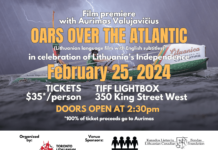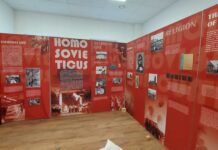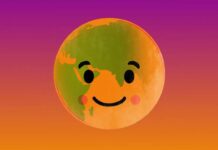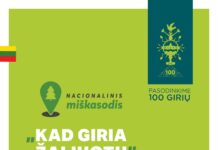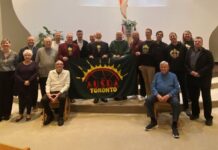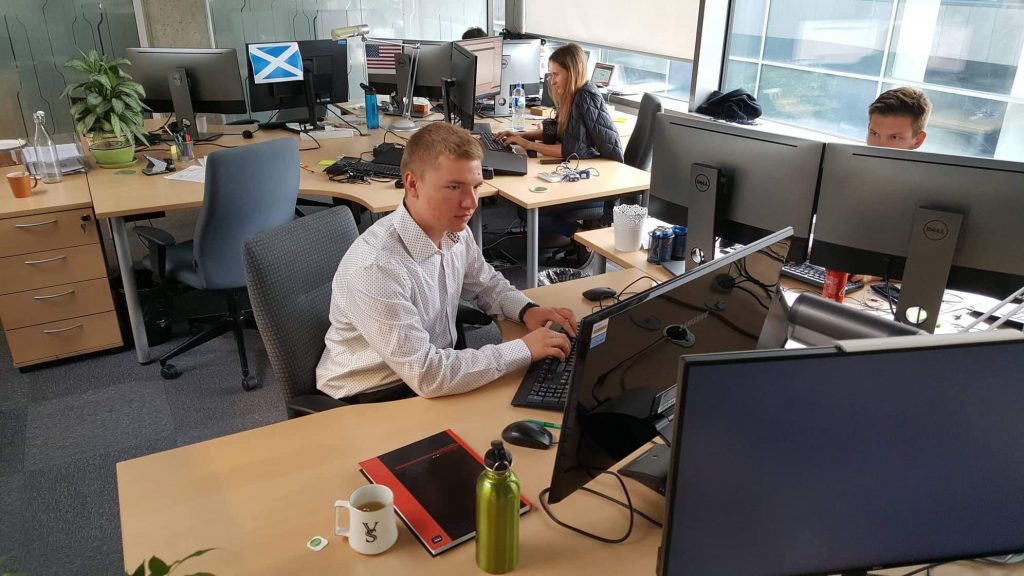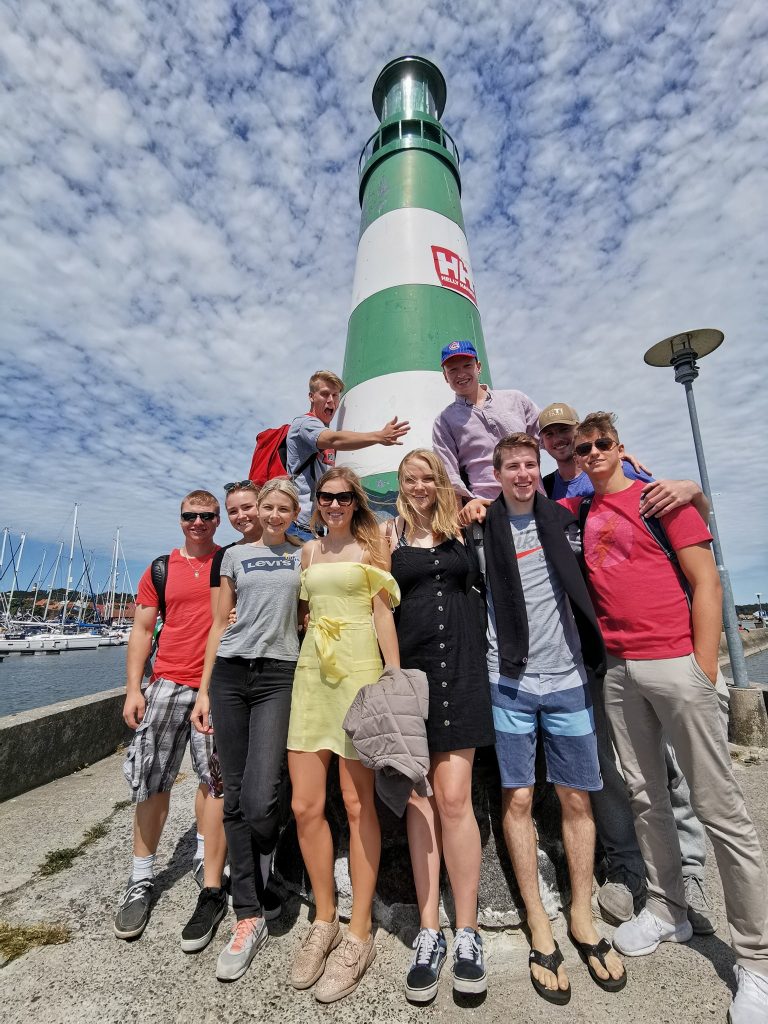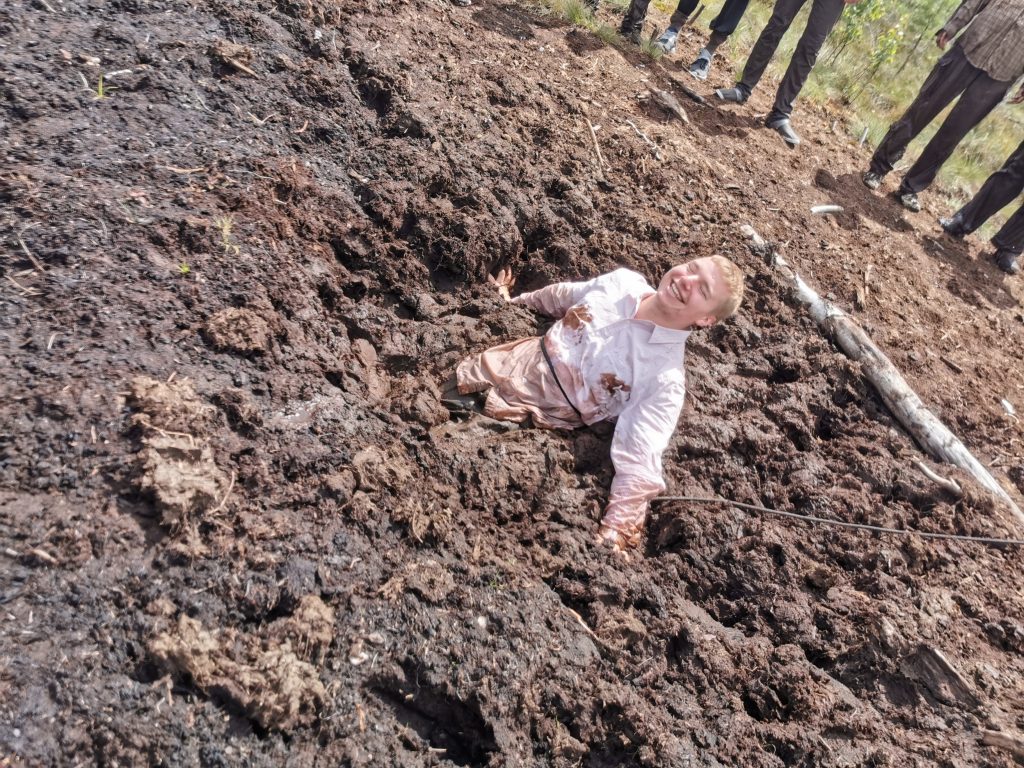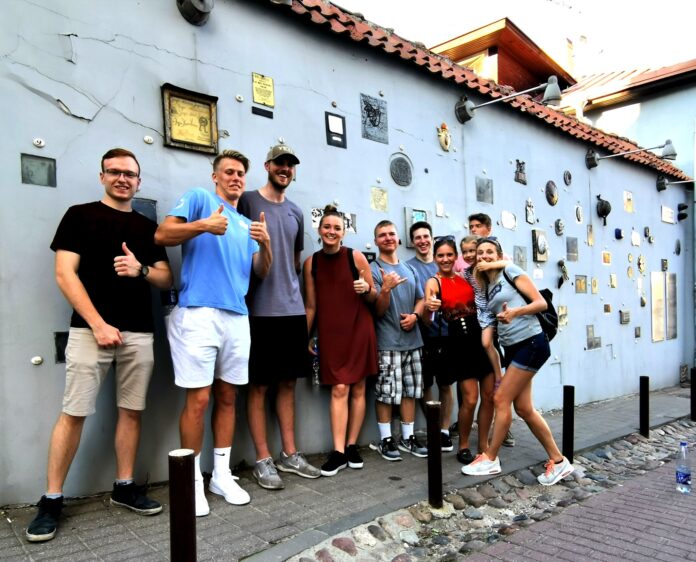
This past summer, a lucky group of students travelled to Lithuania for an intense 5-week program funded by the Lithuanian-American Community called “LISS” (Lithuanian International Student Services). There, they gained professional experience within their major fields of study, interning at various workplaces, while being given the opportunity to hone their language skills and acquaint themselves with daily life. In this issue, “Tėviškės žiburiai” spoke with the only Canadian selected for this year’s program: Lukas Janowicz, a business student from Toronto, Ontario.
To begin, could you tell us more about yourself – who you are, what and where you’re studying, and what career you’re hoping to get into?
My name is Lukas Janowicz and I’m currently studying at Toronto’s Ryerson University, at the Ted Rogers School of Management, and I’m in my final year of Business Technology Management. I’m still not entirely sure what I want to do when I get my degree, but I’m looking into career opportunities in business and technology, consulting, project and product management, and business analytics. My hope is that, later on, I can be an advisor for a company’s strategic management. Outside of school, I’m a Scout leader and enjoy going to car shows, driving, skiing, weightlifting, and working on my startup companies.
How did you discover this opportunity, and what persuaded you to apply?
I discovered “LISS” from others who had been involved in the program or similar programs by the same organization. I asked them about their experience, and they convinced me to give it a shot, telling me I wouldn’t regret it. And they were right!
What was the application process for “LISS” like? What requirements did you have to fulfill? Did you have to write a special essay, or answer questions? And how long did it take for you to learn you were accepted?
Apart from the usual information, like my name, email, phone number and medical history, I had to write a letter explaining who I was, why I wanted to join the “LISS” program, and what I wanted to achieve – particularly where I would like to work in Lithuania and the kinds of jobs that I’d be interested in. It took a few days for them to respond, and more time for me to investigate potential companies I was hoping to work with. It took about two weeks for me to be accepted and to hand in all the necessary paperwork; afterwards I just had to interview with prospective companies to secure my internship. The whole process took about two months in total.
Before leaving for Lithuania, what were you personally hoping to gain from this experience?
Workwise, I was hoping to understand how a small and medium enterprise works, gain some practical work experience, and establish new business contacts and friends. I also wanted to understand my Lithuanian heritage and culture more fully, which I felt I could do by exploring the country on my own (as well as in a group setting), and of course by eating different kinds of Lithuanian food – not just cepelinai and kugelis! In short, I hoped to grow as a person, experience new things, and just have fun!
When you undertook this internship, did you know beforehand that you were the only Canadian student to be selected? Once you found out, how did it feel? What went through your mind?
I did. Before the trip, everyone involved stayed in touch on social media (through a “group chat”) so we could give each other updates. Despite being the only Canadian, I was excited to meet new people, live in a dorm with them during the trip, and have the best experience I could. And so I didn’t have any particular expectations – my goal was to make the most of the experience, and that’s what I did.
Tell us about where you interned for those five weeks. How easy or hard was it to adapt to a distinctly Lithuanian working climate? How comparable is that climate to Canada’s? What challenges did you face during your internship, and how did you work to overcome them during your short stay?
I interned at Etronika, which is a financial technology company that deals in banking solutions for small-to-medium enterprises (e.g., smart loans), with an online banking platform that is easily customizable. I found it very easy to adapt to the Lithuanian work culture. Lithuanians value a work-life balance and understand that stress is not good for productivity, so there were various activities we could engage in during breaks, like a ping-pong table, a racing simulator, or reading in a green room. They also had free, high-quality coffee and tea rather than single-serve machines like Keurig. Clearly they know that a happy employee will be a hardworking employee! When I arrived, I was introduced to all the various departments (even the ones I wouldn’t be working in), which immediately instilled a sense of belonging and friendliness. I did notice that it took a while for the employees to warm to the new interns, but once we became acquainted and started talking, the ice broke and many good conversations followed.
Your itinerary was particularly intense after working hours. What were your favourite memories? What important lessons did you learn from these numerous events, activities and meetings?
You’re right, it was definitely intense! But it was nice because you were always kept busy and doing interesting things – you were never bored. One fond memory was our trip to Nida, where we saw the sand dunes and swam in the Baltic Sea; the views and water were beautiful and relaxing. We also took a boat tour, breakfasted with Nida’s mayor, and visited Raganų kalnas (the Hill of Witches). Bebro kelias was also fun; we bonded as a team by participating in an intense swamp march, where I ended up chest-deep in mud. To end the day off we took in a traditional Lithuanian sauna and ate šašlikai (meat skewers). Another excursion involved a historical tour of Vilnius, including Vilnius University, which is full of amazing artwork. During every trip, the meals we ate were always incredibly fresh and flavourful – even the vegetables. It’s one aspect of the trip I continue to miss. Overall, I learned that it’s important to enjoy the little things, and that teamwork makes the dream work.
Had you met any of the other student interns before? For those you hadn’t met, was it easy to make their acquaintance? Do you still keep in touch with any of them?
I had not met any of them officially before the trip, but everyone was warm and welcoming and wanted to get the most out of the experience, so we all got along and had a great time! Since then, we’ve all connected on social media and occasionally keep in contact with each other, staying up-to-date with the latest happenings in everyone’s life.
Now that your internship is over, what did you end up gaining from the experience? Did it live up to your expectations? Were there aspects you feel could have been done better? Was there something that you, personally, could have done better?
At Etronika, I was able to learn how to consult with clients and immerse myself in an agile environment, which is what a smaller company offers. Since I like to tackle new experiences without expectations and enjoy them for what they are, it was a blast – one of the best life decisions I’ve ever made. I found it to be such a worthwhile trip because I saw, learned, and experienced so much about my Lithuanian culture and heritage. If I could improve anything, it would be getting more thought-provoking tasks at my work placement to challenge myself even more. On the personal side, I wish I could’ve had even more energy than I already did!
Finally, what would you say to those thinking of applying to participate in “LISS” next year?
If you’re interested in applying, know that you’ll have an awesome time and plenty of fun. It’s a once-in-a-lifetime experience that not even the locals can partake in. Since you’ll be living on your own for the most part, you have a sense of independent living; as well, you can get a better insight of what life after schooling can be like and whether or not you will truly enjoy a career related to your studies. Finally, this experience allows you to grow as a person, which is always something you’d want in an opportunity like this.
Thank you for taking the time to speak with us, Lukai! We wish you all the best in your future endeavours!
E-mail interview by Tomas Trussow






